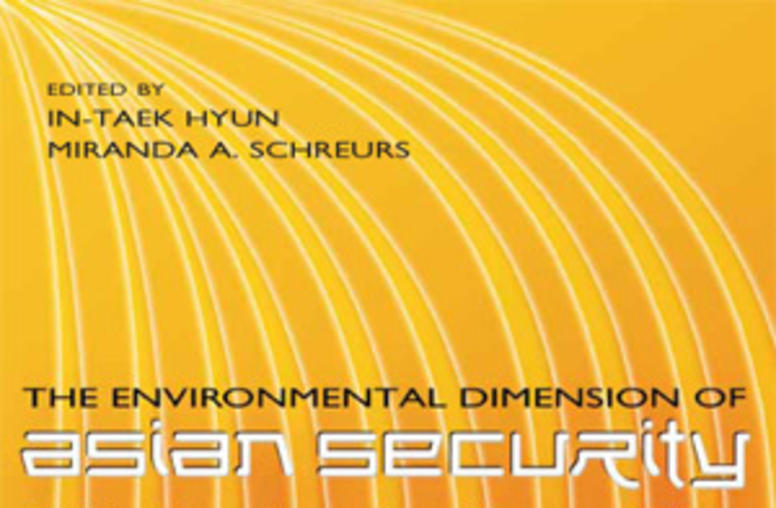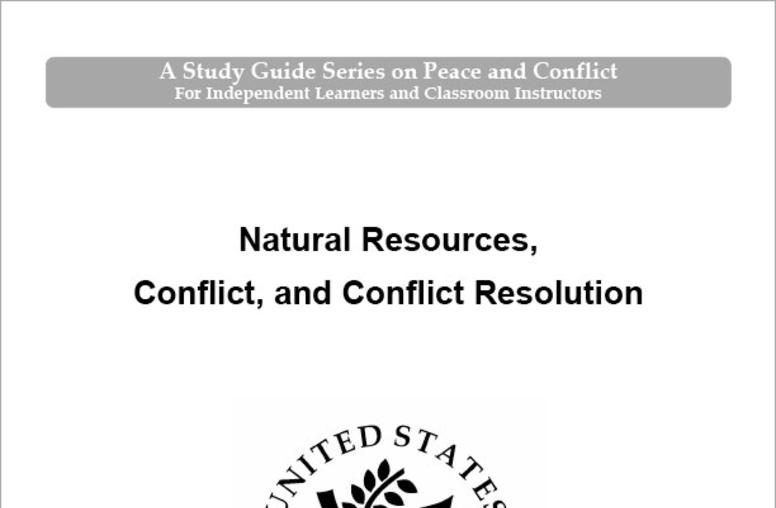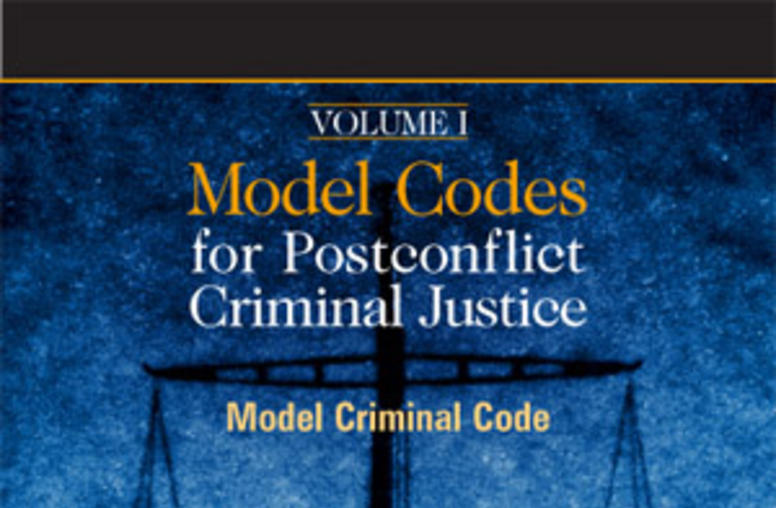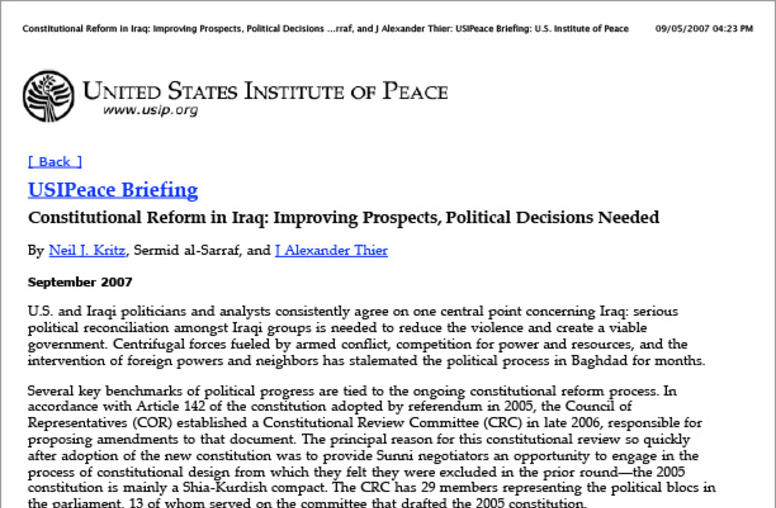Question And Answer
Publications
Articles, publications, books, tools and multimedia features from the U.S. Institute of Peace provide the latest news, analysis, research findings, practitioner guides and reports, all related to the conflict zones and issues that are at the center of the Institute’s work to prevent and reduce violent conflict.

The Environmental Dimension of Asian Security
Examines a host of critical environmental and resource issues through a “regional environmental security complex” that explores the potential for greater intersubjective understandings of regional environmental and natural resource problems and greater institutional collaboration and management.
Religion and Peacemaking Web Links
Below are links to resources primarily in English that provide substantive content on religion and peacemaking activities of various faiths, with a particular focus on specific topics: the work of Catholic groups, faith-based NGOs, Islamic perspectives on peace, and "just war" doctrine. Faith-Based Non-Governmental Organizations Islamic Area Studies Religious Peace Organizations University-based Centers for the study of Religio...

Natural Resources, Conflict, and Conflict Resolution
Competition over natural resources such as oil or diamonds can lead to, intensify, or sustain violence—the resource curse—but natural resources can also play a role in managing and resolving conflict and preventing its reoccurrence. This study guide will illuminate the role of natural resources as causes of conflict, and their role in helping to bring about peace.

Model Codes for Post-Conflict Criminal Justice
Of unparalleled breadth, depth, and authority, the Model Codes for Post-Conflict Criminal Justice is a criminal law reform tool tailored to the needs of countries emerging from conflict. Its three volumes present four complete legal codes that national and international actors can use to create, overhaul, update, or plug gaps in the criminal laws in individual post-conflict states.
Kosovo: Breaking the Deadlock
Kosovo was left at the end of the NATO/Yugoslavia war in 1999 in limbo. It is still there, despite Security Council Resolution 1244, which foresaw a process for deciding its status. What is the way forward?
The Central African Republic: Worsening Crisis in a Troubled Region
Recently, internal conflicts stemming from past and present realities and spillover of political unrest and violence from neighboring countries have given the Central African Republic, one of the least known countries in Africa, more prominence on the international map. Read more about this troubled region.
Iraq: Time for a Change
As Washington prepares for a critical debate in Congress this fall on what should be done in Iraq, the United States Institute of Peace convened over the summer a group of experts with many different political affiliations to consider next steps over a three-year time horizon. Read about the group's main conclusions.
Transitional Justice in Nepal: A Look at the International Experience of Truth Commissions
Amid the run-up to the Constituent Assembly elections scheduled for November, Nepal's government has prepared a Truth and Reconciliation Commission Act. The Truth and Reconciliation Commission (TRC) is the most prominent of several commitments made during the peace process to promote transitional justice following Nepal's more than 10-year civil war.

Constitutional Reform in Iraq: Improving Prospects, Political Decisions Needed
U.S. and Iraqi politicians and analysts consistently agree on one central point concerning Iraq: serious political reconciliation amongst Iraqi groups is needed to reduce the violence and create a viable government.
New Hopes for Negotiated Solutions in Colombia
Drawing from a series of conferences and events organized by USIP, this report examines the status of current peace initiatives in Colombia with the National Liberation Army (ELN) and the Colombian Revolutionary Armed Forces (FARC). It also assesses the paramilitary demobilization process and analyzes the role of local, national, and international third-party actors in each of these processes. The analysis reflects developments on the ground through the end of September 2007.